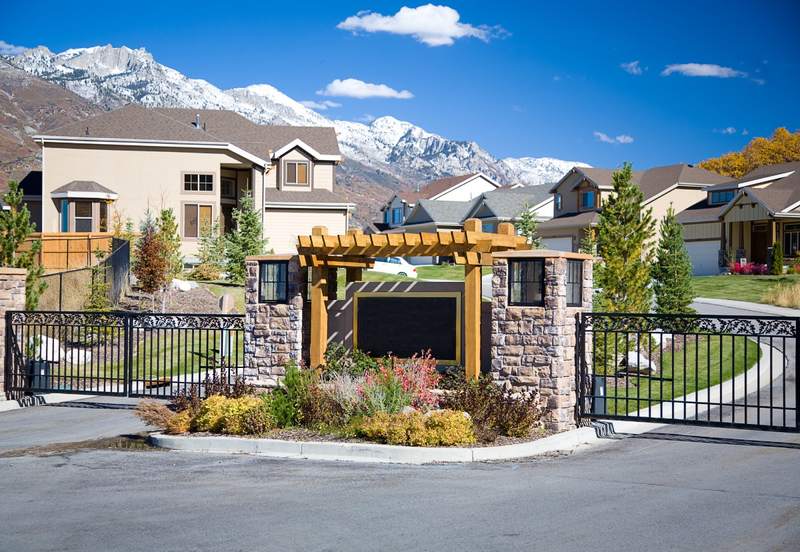
The real estate market goes through cycles, much like the seasons. The weather and the time of year can influence how many homes are on the market, and how many buyers you may have to compete with. Understanding how seasons influence homebuying can help you strategize your approach and manage expectations.
Here’s a rundown of some of the best months and days to buy a home based on seasonal trends.
Is There a Best Time of Year To Buy a Home?
The time of year can affect how many homes are on the market and how many potential buyers there are, which in turn influence purchase prices.
In general, there tends to be more competition among buyers during the spring and summer compared to the colder months. The number of offers per home increases, allowing sellers to choose higher bids above list price. Sellers also may anticipate the increased demand and raise their asking price.
During the fall and winter, there are typically fewer houses and buyers on the market. This can result in a buyer’s market — where the supply of homes exceeds demand and there’s more competition among sellers — and you may feel more comfortable negotiating for a better deal.
“The most popular time of the year to buy a home is usually the spring and summer months,” says Maureen McDermut, a Realtor at Sotheby’s International Realty in Santa Barbara, California. “But often it might make sense to look in off months like December or February, as some listings may be sitting on the market and have a price reduction.”
However, market conditions that aren’t seasonal also impact whether it’s a good time to buy. For example, mortgage rates can change year-round, so you might prioritize securing a mortgage with a more favorable interest rate — even if it means buying when there’s more competition.
Ultimately, the right time to buy may be when you can afford a mortgage and the various costs of homeownership. Perhaps you got a new job or promotion, or the lease on your apartment is up and you’re moving in with your partner.
What Are the Best Months To Buy a Home?
If getting a good price is your priority, then you should buy at the beginning of the year. The lowest average sales price of existing homes over the last four years was in January. For new homes, the lowest average price over the last four years was in March.
Another way to determine the best months to buy a home is by looking at seller premiums, which is how much buyers pay over market value. According to research from Attom Data on single-family home and condo sales between 2011 and 2021, seller premiums are the lowest in October at 5.2%, and the highest in May at 12.6%.
Buying a new home
Here’s a breakdown of the median sales prices for new homes by month, ranked by the least expensive months over the last four years:
Least Expensive Months To Buy a New Home Over 4 Years
| Month | Median Home Sales Price in 2019 | Median Home Sales Price in 2020 | Median Home Sales Price in 2021 | Median Home Sales Price in 2022 | Average Median Home Sales Price Over 4 Years |
| March | $310,600 | $328,200 | $359,600 | $435,900 | $358,575 |
| January | $305,400 | $328,900 | $373,200 | $430,500 | $359,500 |
| February | $320,800 | $331,800 | $362,000 | $427,400 | $360,500 |
| June | $311,800 | $341,100 | $374,700 | $432,700 | $365,075 |
| May | $312,700 | $317,100 | $390,400 | $450,700 | $367,725 |
| April | $339,000 | $310,100 | $376,600 | $458,200 | $370,975 |
| July | $308,300 | $329,800 | $406,000 | $478,200 | $380,575 |
| August | $327,000 | $325,500 | $404,300 | $440,300 | $381,025 |
| September | $315,700 | $344,400 | $413,200 | $477,700 | $387,750 |
| November | $328,000 | $350,800 | $430,300 | $462,300 | $392,850 |
| December | $329,500 | $365,300 | $410,000 | $479,500 | $396,075 |
| October | $322,400 | $346,900 | $427,300 | $496,800 | $398,350 |
Buying an existing home
What if you’re in the market for an existing home? Here’s the same breakdown for existing homes:
Least Expensive Months To Buy an Existing Home Over 4 Years
| Month | Median Home Sales Price in 2019 | Median Home Sales Price in 2020 | Median Home Sales Price in 2021 | Median Home Sales Price in 2022 | Average Median Home Sales Price Over 4 Years |
| January | $249,400 | $266,300 | $303,600 | $354,300 | $293,400 |
| February | $250,100 | $270,400 | $310,600 | $363,700 | $298,700 |
| March | $259,700 | $280,700 | $326,300 | $379,300 | $311,500 |
| April | $267,000 | $286,800 | $340,700 | $395,500 | $322,500 |
| December | $274,500 | $309,200 | $358,800 | $366,500 | $327,250 |
| November | $271,300 | $310,800 | $358,200 | $372,700 | $328,250 |
| October | $271,100 | $313,000 | $355,700 | $378,800 | $329,650 |
| September | $271,500 | $311,500 | $355,100 | $383,500 | $330,400 |
| May | $278,200 | $283,500 | $355,000 | $408,600 | $331,325 |
| August | $278,800 | $310,400 | $361,500 | $391,700 | $335,600 |
| July | $280,400 | $305,600 | $364,600 | $399,000 | $337,400 |
| June | $285,400 | $294,400 | $366,900 | $413,800 | $340,125 |
What Are the Best Days To Buy a Home?
If you want to get more specific, seller premiums can be used to determine which days of the year could save you the most money on your home purchase.
According to research by Attom Data from 2011 to 2021 on single-family home and condo sales, Nov. 28 is historically the best day to close on a home, with the lowest seller premium of 1.1%. This is likely because the days around Thanksgiving tend to be when people like to gather with family or travel, as opposed to closing on a home. But if you’re willing to sacrifice this time, it could help you land an affordable deal.
A similar trend of low seller premiums can also be found around Christmastime, likely for the same reasons.
Here’s a ranking of other days of the year that have the lowest seller premiums:
Table Header
| Day of the Year | Seller Premium |
| Nov. 28 | 1.1% |
| Jan. 9 | 1.3% |
| Dec. 5 | 1.5% |
| Dec. 26 | 1.5% |
| Dec. 19 | 1.9% |
| Dec. 12 | 2.0% |
| Dec. 24 | 2.0% |
What Are the Worst Days To Buy a Home?
The end of May had the highest seller premiums from 2011 to 2021, according to Attom Data. Historical research shows that May 20, May 23, and May 27 have the highest seller premiums — around 15% over the average home sales price.
What Are Other Factors That Affect Home Prices?
While the time of year can impact home prices, here are some other factors that will also influence the cost of homeownership:
- Mortgage rates. The interest rate on your mortgage will have a big impact on the demand for homes. When mortgage rates are high, demand and home prices tend to decrease, and when rates are low, demand and home prices increase.
- Inventory. When there’s a larger supply of homes on the market, prices tend to decrease because there’s less competition among buyers. During a housing shortage, prices typically increase because buyers are competing against each other for a limited supply of homes.
- The location you’re buying in. If you’re looking to buy in a high-demand neighborhood, then you can expect to pay more for a home compared to areas that are less in demand. Prices vary considerably depending on the neighborhood, city, and state where the home is located.
- The state of the economy. When the economy is strong and unemployment is low, more people can afford to buy a home, which increases home prices and demand. If the economy is struggling and there’s a recession, home prices tend to drop.
- How strong your finances are. If you have good credit and a low debt-to-income ratio, and can make a large down payment, a lender is more likely to charge you a lower interest rate, which saves you money in the long run. This also can allow you to afford a more expensive home.
What Are Other Seasonal Costs That Affect the Cost of Buying a Home?
There are other seasonal factors that affect the cost of buying a home.
If you’re buying a fixer-upper and planning to renovate or replace certain systems, the time of year can affect the cost of professional services. For example, if you need to repair your heating, ventilating, and air conditioning system, HVAC professionals are the busiest during the summer and winter, so you may have to pay more for their services.
Also, if you’re buying in a location where temperatures fluctuate drastically depending on the season, your energy costs will be higher.
FAQ
Here are answers to some frequently asked questions about the best time of year to buy a home.











